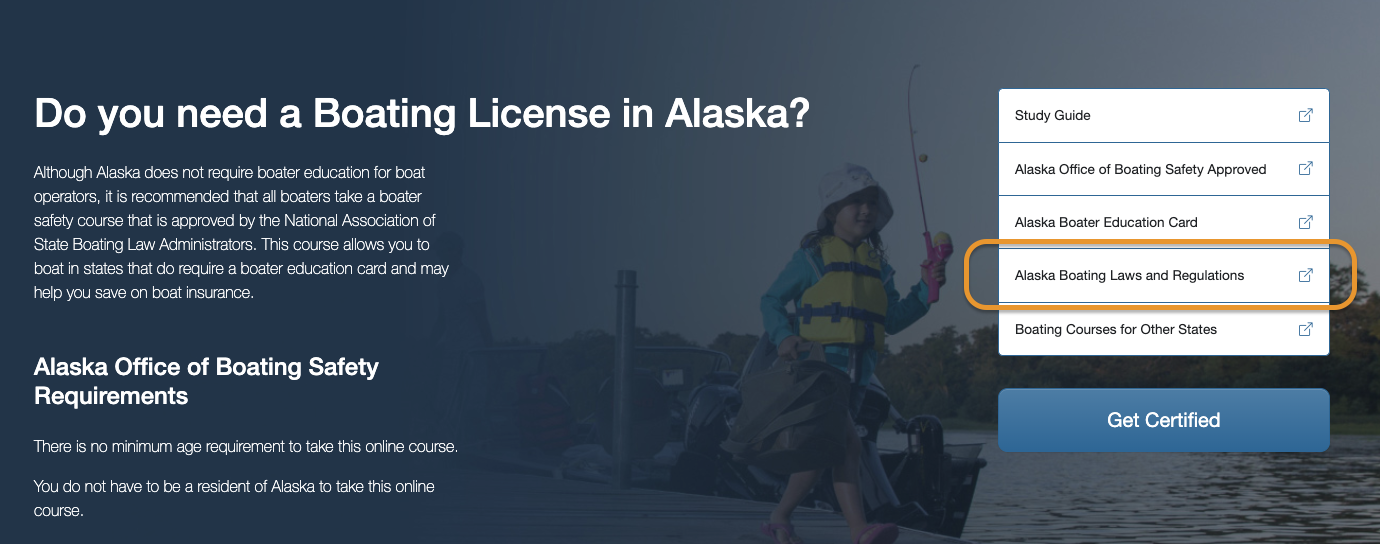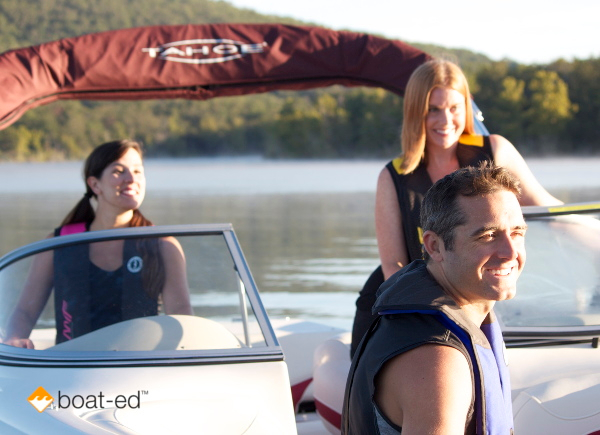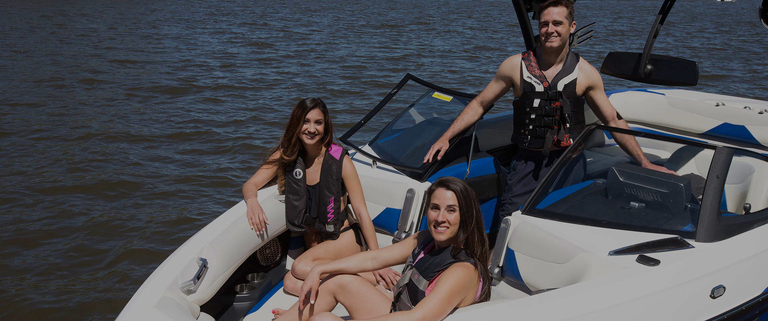10 Common Boating Questions and Answers

Knowing everything about boating can take decades of firsthand experience. Even with a boater's education course, there's so much you can (and will) learn by practicing what you've been taught.
You might also continue having questions about boating safely, and we encourage you to continue learning and honing your safety best practices after earning your boating certification.
What kind of questions could you have? Here are ten of the most common boating questions (and some quick answers) to help you have a safe and enjoyable boating season.
1. Is a Teenager Allowed to Operate a Boat Without Adult Supervision?
Legal restrictions concerning who can and cannot operate a boat, with or without an adult, differ from state to state.
Generally, anyone younger than 17 cannot operate a boat without adult supervision. So, be sure to check your state boating laws for individual regulations.
Anyone caught operating a boat without their required boating safety course certification may be subjected to a fine.

2. What Can I Use to Download United States Fishing and Marine Charts?
While topography devices like a Garmin GPS may be easier for the average boater, physical maps can enhance the boating experience.
You can customize and print maps from MyTopo or download charts from Navionics to your mobile device. The National Oceanic and Atmospheric Administration (NOAA) also offers maps for the U.S. coastal and Great Lakes regions.
3. Is There a Kelly Blue Book Equivalent for Boats?
Prospective boat owners can turn to this J.D. Power resource to find price recommendations for thousands of boats. Formerly known as NADA Guides, this expansive resource covers more than 100 manufacturers of sailboats, power boats, personal watercraft, outboard motors, and boat trailers.
Select the boat size and features, and the site gives you the suggested low and average retail price.
4. Does My State Boating Certificate Expire?
If so, do I have to retake the course?
Cards issued upon completion of the boating safety education course do not expire. Unless your state legislature changes its law, you will not have to retake the course.
If you lose your card, go to your state's page to find information on requesting a new one.
5. How Long Do I Have to Pay for the Course?
If you take your boat safety course with Boat-Ed, you can pay any time after you have completed the course. This can mean within two weeks or more than five years.
Your progress will be saved until you're ready to officially become boater certified.
6. How Many and What Types of Life Jackets Am I Required to Have When Boating With Passengers?
Boat operators should always have as many life jackets as people on the boat. Even those on a jet ski or pulled on water skis or tubes must wear a USCG-approved life vest.
If your state law does not require you to wear a life jacket because of age provisions or experience, we still strongly suggest that you buy a well-fitted life vest and wear it at all times. A life jacket can save your life, even if you are a strong swimmer.

7. When Should I Report a Boating Accident?
If an accident occurs, the boat operator or witness should report the accident immediately to the nearest law enforcement agency.
Accidents are considered "reportable" incidents if they:
- Result in a death or disappearance
- Cause injuries to a person that requires medical treatment beyond first aid
- Cause damage to a vessel or other property exceeding $200 to $2,000, depending upon your state
If you're not sure whether or not an accident meets these requirements, err on the side of caution and report it.
8. What Forms of Identification Do I Need to Carry On Board?
Boating operators should always carry their permanent boating safety course certificate and any other identification specific to state laws.
It's also a good idea for passengers to carry ID in case authorities request it or it's needed in an emergency.
9. I Have Owned a Boat for More Than 20 Years. Can I Be Grandfathered into the Requirement for Needing a Boating Certificate?
Individual state boating laws determine who is required to have a boating certification. Many boaters born before 1980 don't need to take a course, but regulations vary by state.
A quick way to find out is by selecting your state and visiting the "Boating Laws and Regulations" link in the page's right-hand column to make sure you qualify for any exceptions.

10. I Have Been Boating for 25 Years. What Reason Would I Have to Take a Boat Safety Course?
Depending upon your age, your state may not require you to have a safe boating certificate. However, many boaters take the boat safety course to save on insurance or boating in other states requiring a certificate or boating license.
Check your state's laws to verify boater education requirements.
For more answers to common questions or to brush up on your safety education, you can always access our state-specific study guides online or download the Boating Laws and Responsibilities e-book for your state.
Get Your Boating Certificate and Hit the Water This Season
A boat safety certificate is more than just a requirement in most states; it can save your life!
Understanding how to stock your boat with the right safety equipment, choose the right life jackets, and navigate the waters among other boats and watercraft can help you and your friends and family have a more enjoyable time on the water while avoiding injuries.
To get your license, find the course for your state, then create your student account and start learning! Our courses are online and convenient to take anywhere at your own pace.
Originally published July 25, 2013. Content updated February 5, 2024.



